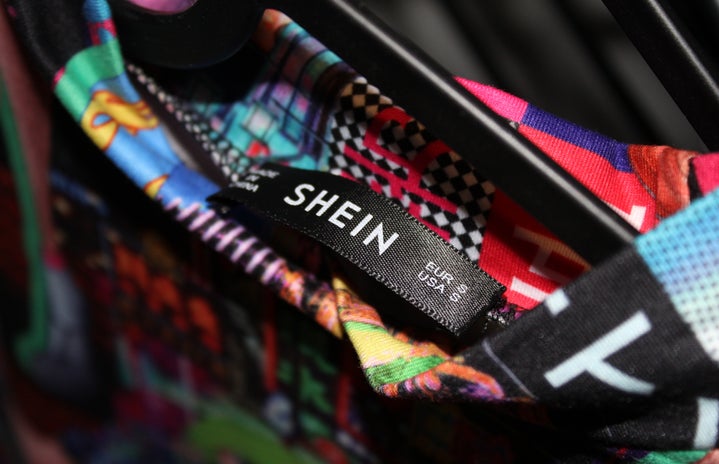Just about everyone has experienced or at the very least heard about the popularity of fast fashion corporations in the 2010s. Teens to young adults relied on these companies for inexpensive ways to keep up with trends and develop their style. In recent years, the environmental impact of the fashion industry has taken center stage as many consumers analyze their consumption habits, scrutinize companies who fuel fast fashion, and support those who in turn focus on slow fashion.
Some may have predicted that the decline of fast fashion would have occurred with Forever 21 filing for Chapter 11 Bankruptcy in 2019. This type of restructuring allows the company to reorganize and file a plan for repayment of their loans as opposed to shutting down the company entirely. With the decline of the company even under new owners, many saw this as a result of the unsustainable business model of fast fashion companies with some companies having averaging 2,800 new items added to their website a week.
On the contrary, fast fashion has been at an all-time high with Chinese retailer, SHEIN, becoming one of the most popular and most scrutinized companies in the industry. For any user on TikTok, you are likely to see a creator post about their recent SHEIN haul or their Outfit of the Day with at least one piece from SHEIN.
This semester in a Pop Culture and Fashion class, my professor asked the class, “Who has purchased something from a fast fashion company within the past 6 months?” Almost every student raised their hand yet not in a confident way with their hand in the air. Everyone kept their hand close to their chest and raised it just enough so the professor could see, but not enough to draw attention to themselves.
This triggered a discussion within the class as to understand why would something so popular be so shameful for the consumers who buy from the companies. If every single student raised their hand then why were we afraid to explicitly say that we have purchased something from SHEIN, Zara, H&M, ASOS, or any other company.
The answer for the most part has to do with the demographic we are asking. This was a class of college students. The TikTok creators and users for the most part are not willing to spend the majority of their disposable income on sustainably sourced pieces from companies such as Reformation. The pandemic led to a lot of us without a job or for the most part being stuck at home and fast fashion companies used this to their advantage.
“In times of crisis, consumers don’t stop shopping—they just limit their purchases to affordable pleasures. Fast fashion had expanded its market share during the 2008 global financial crisis; now this new cohort of companies—known as ultra-fast fashion—was poised to do the same”
Rachel Monroe, The Atlantic
Some may be trying to save money others might have money but nowhere to go. Online shopping to get new loungewear or athleisure was common, and few felt the need to spend absurd amounts of money on the clothing because we were all going to be at home anyway. The clothing did not need to be of great quality because we weren’t going anywhere or putting the clothing in conditions that would require better quality.
We feel the shame yet all of us are in the same position, and it is unfair to expect one to spend money they may or may not have. If we want to see a change, the ones who should take the blame are not the consumers, but the companies who continue to push the fast fashion industry forward. Their scale and ways to undercut costs make it harder to choose any company when the price range is much higher. The least we can do is decrease the stigma surrounding shopping at these stores especially when more often than not this is the only option.


